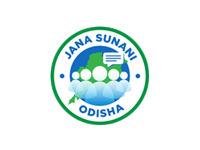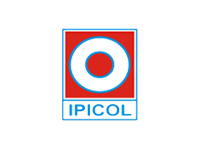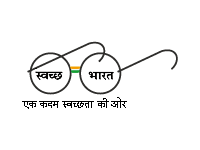Objective
- Reduction in child and maternal mortality.
- Universal access to public services for food and nutrition, sanitation and hygiene, and universal access to public health care services with emphasis on services addressing women’s and children’s health and universal immunisation.
- Prevention and control of communicable and non-communicable diseases, including locally endemic diseases.
- Access to integrated comprehensive primary health care.
- Population stabilisation, gender and demographic balance.
- Revitalisation of local health traditions and mainstream AYUSH.
- Promotion of healthy life styles.
Goal
- The goal of NRHM is to improve the availability of and access to quality health care by people, especially for those residing in rural areas, the poor women and children.
Vision
- Provide effective healthcare to rural population throughout the state.
- Increase public spending on health with increased arrangement for community financing and risk pooling.
- Undertake architectural correction of the health system to enable it to effectively handle increased allocations and promote policies that strengthen public health management and service delivery in the state.
- Revitalise local health traditions and mainstream AYUSH into the public health system.
- Effectively integrate of health concerns, through decentralised management at district level, with determinants of health like sanitation and hygiene, nutrition, safe drinking water, gender and social concerns.
- Address inter-state and inter-district disparities.
- Set time bound goals and report publicly of progress.
- Improve access of rural people, especially poor women and children to equitable, affordable, accountable and effective primary health care.
Achievements
- Successful implementation of Janani Surakhya Yojana. Over 2.51 lakh beneficiaries have availed JSY benefits.
- Institutional Delivery increased by 25% in the State in the last one year.
- Accreditation of private /public sector institutions for disbursing JSY benefits
- Operationalising FRUs and making PHCs 24x7 currently being undertaken
- Multi-skilling of MBBS Doctors in O & G and Anesthesia is currently in progress.
- Institutional up gradation with NRHM funds.
- Providing additional Paramedics to different categories of health institutions.
- Skill Birth Attendance training has commenced.
- IMR in the State has decreased from 81in to 65.
- Training in Integrated management of new-born care and childhood illness already completed in two districts.
- “Pustikara Diwas” initiated in the State for treatment and referral of under 6 Malnourished Children.
- Full immunization in children has increased from 43.7% (NFHS- II) to 51.8%(NFHS –II)
- “Swasthya Melas” organized in remote tribal areas benefiting 18807 beneficiaries.
- 184 RCH camps organized in different Blocks catering services to 71544 beneficiaries under different services.
- Loss of wages benefits received by 96959 mothers
Contacts
Mission Directorate
National rural Health Mission Orissa
Unit-VI, Behind Capital Hospital
Bhubaneswar-751001
Ph/Fax : 0674-2392479/80
e-mail : oshfws@orissahealth.org
URL : www.orissahealth.org
State Health and Family Welfare Society
At the State level Orissa State Health and Family Welfare Society has been constituted under the Chairmanship of the Chief Secretary and Vice Chairmanship of the Principal Secretary, Health & Family Welfare. The Executive Director/Member Secretary now merged with the position of the Mission Director is the functional head of the Society. This society is responsible for providing programme management support to different implementing agencies. The society operates through the Zilla Swasthya Committees (ZSS) and the District Programme Management units.
District Health Vision
Zilla Parishad President : Chairman
Collector : Co-Chairman & Chief Executive
CDMO : Member Convener
Other members represent various departments of Health and related department. The ZSS is expected to function as the Executive Body of the District Health Vision.
The District Programme Management Units (DPMU) at the district level comprising of the District Programme Managers, Data Assistants and District Accounts Managers have already been placed under RCH-II. The DPMU is responsible for NRHM/RCH-II and other national programme implementation at the district level.
Block Level Arrangement
There will be a Block Programme Management Unit comprising of the Block Programme Organizer and support functionary. The unit will report to the District Programme Manager and the Medical Officer (I/C) and shall be responsible for preparation of block and village level plans, public private partnerships, monitoring and implementation of Government programmes, training of ASHA and inter sectoral co-ordination.
At the Block level Rogi Kalyan Samities or Hospital Management Committees have been constituted consisting of an elected representative as Chairperson and block level heads of departments of Health and Family Welfare, Woman and Child, RD and Education. The existing Hospital Advisory Committee will merge into it. The role of the Rogi Kalyan Samiti at block level is management of the health institution through community participation.
Village Level Arrangement
Under NRHM’s mandate of decentralized planning, Village Health committees or Gaon Kalyan Samiti are being constituted in the State. These committees shall have representatives from PRI, WCD, Self Help Groups NGOs, ASHA and ANM.The Village level committees shall be responsible for community mobilization, preparation of village level plans, community based monitoring of health services. This year 10% of the Village Health Committees shall be made functional.
NRHM Initiatives
As per NRHM Guideline stipulation a separate Mission Directorate has been constituted and the State Programme Management Unit provides technical support to the State Health Mission.
The Mission Directorate is the Secretariat to the Mission and has the same arrangement envisaged under RCH-II with its role expanded to cover NRHM. The Directorate would comprise of Programme Managers and a group of specialists in the areas of social development, human resource development, economics, BCC, M&E, Public Private Partnerships, Chartered Accountant/financial analyst etc. The number of such staff shall be ascertained after DFID’s Human Resource Assessment Report.















